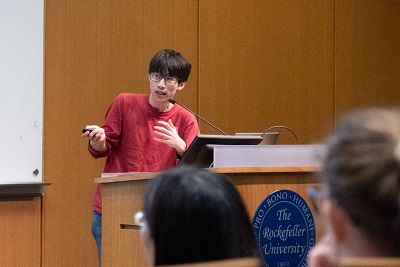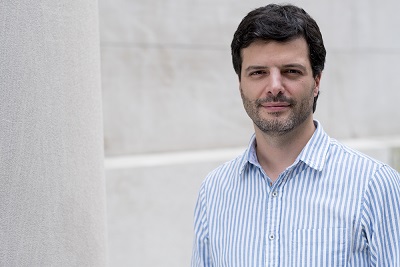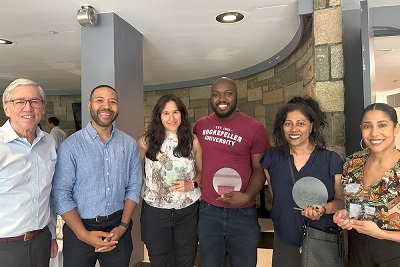Nathaniel Heintz and Stanislas Leibler elected to the National Academy of Sciences
Nathaniel Heintz, James and Marilyn Simons Professor and head of the Laboratory of Molecular Biology, and Stanislas Leibler, Gladys T. Perkin Professor and head of the Laboratory of Living Matter, have been elected to the U.S. National Academy of Sciences. They are among 84 new national and 21 new foreign members, the Academy announced May 3.
Established by an act of Congress, the Academy provides independent, objective advice to the federal government and other organizations on matters related to health, science, and technology. New members are elected by their peers based upon their distinguished and continuing achievements in original research. Election to the Academy is one of the highest U.S. honors a scientist can receive.
Borrowing techniques from other disciplines, as well as creating some of his own, Heintz, who is also a Howard Hughes Medical Institute investigator, aims to pinpoint the biological processes that contribute to the function of the mammalian brain, and explore how they are altered in disease. He and his colleagues use novel gene engineering approaches to investigate the complex structure and functions of the mammalian brain, and their findings have shed light on conditions including Parkinson’s disease, nicotine addiction, and autism spectrum disorder.
Leibler’s work lies at the interface of biology and mathematics. He investigates the collective behavior of biological systems such as cells or organisms. Work in his lab is focused on developing both theoretical and experimental methods to study how biomolecules, cells, organisms, and populations interact. Focusing on basic questions related to how simple networks of genes and molecules function in bacteria, his lab seeks to understand how these individual components can give rise to complex, collective phenomena.
“It is a pleasure to see Nat and Stan recognized in this way on the national stage,” says Marc Tessier-Lavigne, the university’s president. “Both take highly creative approaches to their research and have made profound insights into enormously complex biological phenomena. Their election to the National Academies of Science is a reflection of the high regard in which they are held throughout the scientific community.”
Including the new members elected this year, the total number of active Academy members is 2,291, and the total number of foreign associates is 465. With Heintz and Leibler’s election, Rockefeller now boasts 37 members or foreign associates of the National Academy of Sciences among its 78 current faculty.


